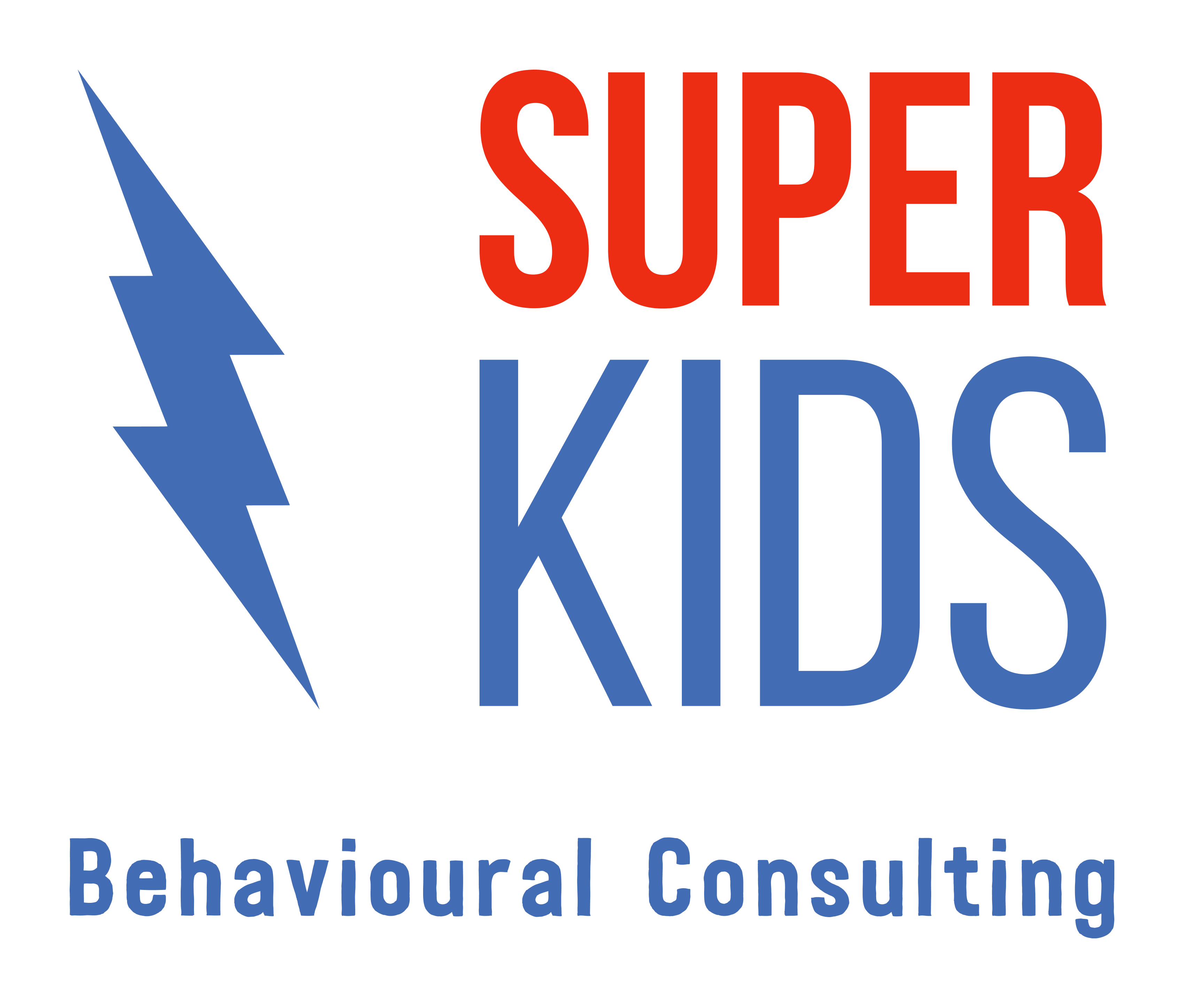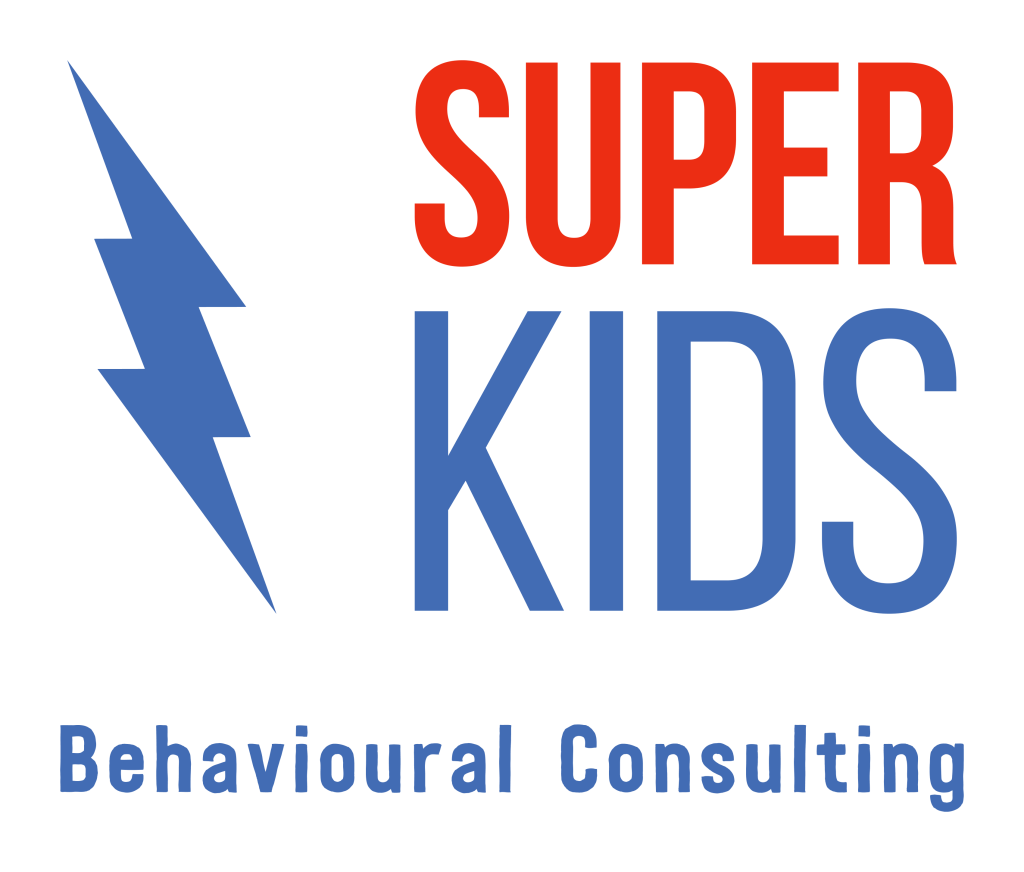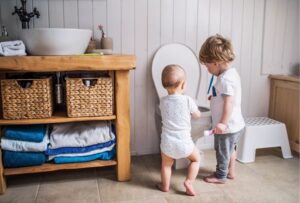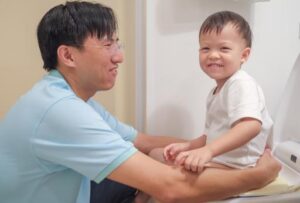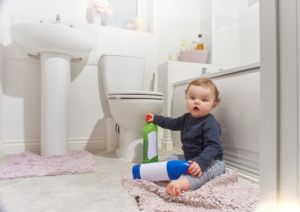Why Isn’t My Child Toilet Trained Yet? The Most Common Reasons for Not Being Toilet Trained

Renee Collins
Clinical Director & Behaviour Consultant
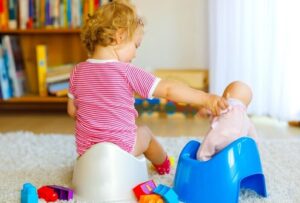
Toilet Training: Understanding Common Challenges and Solutions
Toilet training is a normal part of childhood development. However, some children experience difficulties and may not be fully toilet trained by a certain age. Most children achieve daytime urinary continence (wee) and fecal continence (poo) by 4 years of age. Urinary incontinence occurs when children aged 5 years or older cannot control their bladders, leading to daytime accidents. Day wetting affects around 10% of 5-6-year-olds and decreases with age. If a child regularly has accidents after this age, professional advice is essential.
Common Reasons for Toilet Training Challenges:
Physical Delays & Medical Conditions
Physical delays, such as a weak bladder or poor muscle tone, can complicate toilet training. Certain medical conditions, including urinary tract infections, constipation, or bladder problems, can also make it more challenging. Chronic constipation can further impact urinary continence. A full bowel may press on the bladder, causing confusion about urgency or leading to accidents. These painful conditions often make the toilet feel scary and uncomfortable for children, increasing their desire to avoid it.
Some medications, like Risperidone (often prescribed for ADHD), have been linked to incontinence (Agarwal, 2000). Medication side effects should be considered and ruled out when dealing with toilet training challenges.Common Medical Red Flags:
- Unable to hold urine for more than an hour
- Urinating more than eight times a day
- Urine leakage
- Sudden, urgent need to urinate
- Small, hard stools that are difficult to pass
- Other symptoms like stomach pain, poor appetite, irritability, or bleeding from anal fissures.
If you notice any of these signs, addressing the underlying medical issue is crucial. Discuss concerns with your child’s GP, pediatrician, continence nurse, or gastroenterologist before continuing toilet training.
Emotional and Behavioral Concerns
Emotional and behavioral issues, like anxiety or sensory sensitivities, may hinder toilet training. Children may not fully understand expectations or might resist the process due to discomfort with certain aspects. This is more common in children with developmental delays. For example, sensory sensitivities may cause distress with the sound of flushing or the feeling of wet underwear. Behavioral interventions can help your child feel calm and confident in the bathroom.Poor Toilet Training Techniques
Ineffective toilet training strategies can also cause setbacks. Punishment, shame, or inconsistent training can make the process more challenging. A lack of practice opportunities may also contribute to difficulties. If toilet training isn’t progressing as expected, seek help to ensure a positive experience for both you and your child.
When to Seek Medical Professional Help:
Consult your GP if your child is over 5 years old and:
- Experiences wee accidents more than once a month
- Has never been daytime toilet trained
- Starts having poo accidents after being accident-free
- Struggles with constipation
Or, if your child is 4 years old or older and still cannot control when or where they poo.
A GP might begin by examining the abdomen, lower back, and genital area. They may also perform urine tests or order an abdominal ultrasound to assess the kidneys and bladder. Bringing a toilet diary to the appointment can help provide crucial information about your child’s accidents, including stool consistency as rated by the Bristol Stool Chart.
Gaining healthy toilet habits often involves adjusting diet, fluid intake, and exercise. If these measures don’t work, the GP may prescribe medication or refer your child to a specialist for further evaluation. Once medical concerns have been addressed, additional behavioral support can make toilet training successful and enjoyable.
By understanding common toilet training difficulties, parents and caregivers can better support their children. For more tips, check out our free Preparing for Toilet Training Guide. If challenges persist, seek help from your child’s GP, pediatrician, or a behavior analyst experienced in toilet training.
Super Kids acknowledges each individual’s personal preference to use identity-first or person-first language to describe themselves or their loved one. We interchangeably use both language conventions and therefore refer to both Autistic children and children with Autism.
